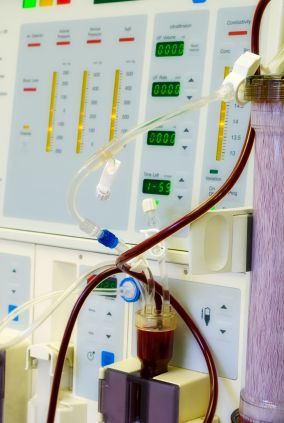Top Class Actions’s website and social media posts use affiliate links. If you make a purchase using such links, we may receive a commission, but it will not result in any additional charges to you. Please review our Affiliate Link Disclosure for more information.

According to the GranuFlo lawsuit, William Jones began undergoing dialysis treatment in June 1997 at East Ridge Dialysis in East Ridge, Tenn., in which he underwent dialysis treatment three times a week. His last kidney dialysis treatment was on April 19. Jones allegedly suffered from a heart attack on June 4, 2012 and again on April 21, 2013, which is the same day that he died.
Mr. Jones left behind his wife Valerie Jones, who filed this GranuFlo lawsuit in Tennessee federal court.
Kidney dialysis is necessary for individuals who have suffered from end stage kidney failure. During dialysis, a solution passes through an artificial kidney to clean the blood, since the kidneys are no longer able to do the work themselves. The solution is made up of three fluids: ultra-pure water, bicarbonate concentrate and acid concentrate.
Fresenius makes and sells two acid concentrates — GranuFlo and NaturaLyte – which are used to remove impurities from the blood during kidney dialysis treatment.
GranuFlo and NaturaLyte work by neutralizing the acid in the blood by providing bicarbonate. For kidney dialysis treatment to work and perform the job of filtering the blood that is normally done by the kidneys, an acid concentrate such as GranuFlo or NaturaLyte need to be used. When the acid concentrates enter the bloodstream they are naturally converted to bicarbonate. Bicarbonate is how more than 90 percent of carbon dioxide takes form in the bloodstream, keeping the blood from becoming too acidic — a job normally done by healthy kidneys.
The problem with GranuFlo and NaturaLyte is that they were allegedly not properly dosed and have been linked to a potential rapid increase of bicarbonate, leading to a condition known as alkalosis — meaning that the blood has become too alkaline. If a person develops alkalosis, the risk of catastrophic heart side effects becomes 6 to 8 times more likely and can lead to sudden death.
In November 2011, Fresenius sent a memo to its own clinics stating that GranuFlo was responsible for 941 deaths due to cardiac arrest at clinics in 2010. They didn’t notify all of the clinics where the acid concentrates were used until March 2012, after Fresenius was questioned by the U.S. Food & Drug Administration (FDA) upon receiving an anonymous copy of the November 2011 memo.
In June 2012, the FDA issued a Class I recall of NaturaLyte and GranuFlo — the most serious recall they can issue, restricted only for products that may result in severe injury or death.
Mrs. Jones claims that Fresenius knew or should have known about the risks associated with GranuFlo and Naturalyte. In her GranuFlo lawsuit, she is charging Fresenius with strict liability, breach of express warranty, breach of implied warranty, failure to warn, negligence, negligent misrepresentation, violating the Tennessee Consumer Protection Act, fraudulent misrepresentation and concealment, unjust enrichment and loss of consortium. She is suing for compensatory and punitive damages.
The GranuFlo/NaturaLyte lawsuit will most likely be added to ongoing multidistrict litigation, In Re: Fresenius Granuflo/Naturalyte Dialysate Products Liability Litigation, MDL No. 2428, in the U.S. District Court for the District of Massachusetts.
If you or someone you know experienced a negative side effect after GranuFlo or NaturaLyte were used during kidney dialysis, legal options are available. Learn more and get a free consultation regarding a claim’s eligibility at the Kidney Dialysis Heart Attack, GranuFlo & NaturaLyte Recall Class Action Lawsuit Settlement Investigation. Experienced legal professionals are available to determine whether acid concentrates played a role in your complications, so act now.
ATTORNEY ADVERTISING
Top Class Actions is a Proud Member of the American Bar Association
LEGAL INFORMATION IS NOT LEGAL ADVICE
Top Class Actions Legal Statement
©2008 – 2024 Top Class Actions® LLC
Various Trademarks held by their respective owners
This website is not intended for viewing or usage by European Union citizens.














